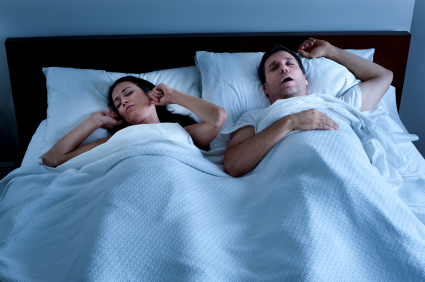Healthier sleep habits, tonight?

Healthy sleep habits can make a huge difference in your quality of life. Having healthy sleep habits is often referred to as good “sleep hygiene.”
Here are some valuable sleep practices to use on a consistent basis:
- Adhere to the same bedtime and wake up time, even on the weekends.
This helps to regulate your body’s clock and could help you fall asleep and stay asleep for the night.
Here’s a reliable tip.
If you think to wake up at a particular time or tell yourself to wake up at a specific time, it will happen.
How?
Consider self programming for success.
Example: I will arise at 6 am sharp.
Try it on a weekend or day where you can afford to practice a little. Then after a few successful attempts, give it a try on a day when you really need to arise. Your subconscious mind might surprise you.
- Use a relaxing bedtime ritual.
A comfortable, routine activity right before bedtime conducted away from anything stimulating helps to make falling asleep easier and faster. The brain follows what we do for it. When we calm it, it calms. We allow relaxation, it relaxes. And so on.
-
Naps especially in the afternoon ruin night sleep.
Power napping can help you get through the day, but if you have difficulty with sleep at bedtime, eliminating short cat naps can keep you consistently in a good sleep pattern.
- Exercise daily.
Vigorous exercise is a best practice most can adopt without cost. This resource will get you started http://tinyurl.com/pfogxu8 Even light exercise is better than zero activity. Exercise at any time of day, but not if your sleep suffers.
- Evaluate your room.
Design your sleep area to establish the conditions you need for comfortable sleep. Your bedroom can be cool – between 60 and 67 degrees Fahrenheit. Your bedroom should also be free from any disturbing noise. Finally, your bedroom should be void of light. Check your room for noises or other distractions. This includes a bed partner’s sleep disruptions such as snoring. Consider using these options to enhance and assure your optimal sleep area: blackout curtains, eye shades, ear plugs, “white noise” machines, humidifier, fans and other devices.
- Sleep on a comfortable mattress and pillows.
Make sure your mattress is maximally comfortable and supportive. The one you have been using for years might have worn down – about 9 or 10 years for most good quality mattresses. Obtain comfortable pillows and make the room visually attractive and inviting for sleep and also free of allergens ( i.e. that might affect you and objects that might cause you to slip or fall if you have to get up during the night).
-
Use bright light to manage your circadian rhythms.
Avoid bright light in the evening and expose yourself to sunlight in the morning. This will keep your circadian rhythms ( high/low energy cycle) in balance.
- Avoid or eliminate alcohol, cigarettes, and heavy meals in the evening.
Alcohol, cigarettes and caffeine can disrupt sleep. Eating big or spicy meals can cause discomfort from indigestion that can make it hard to sleep. It is good to finish eating at least several hours before bedtime. Assess your tolerance and adjust according to your needs.
- Wind down. Allow your body to shift down into sleep-time mode.
Spend the last hour before bed doing a calming activity such as reading.
For some people, using an electronic device such as a smart phone can make it hard to fall asleep. This is because the particular type of light emanating from the screens of these devices is activating to the brain. If you have trouble sleeping, avoid electronics before bed or in the middle of the night.
- If you can’t sleep, go into another room and engage your mind or body by doing something relaxing until you feel tired.
It is best to take work materials, computers and televisions away from your sleeping environment. Use your bed only for sleep (and sex). This strengthens the association between bed and sleep. If you associate a particular activity or item with anxiety (about sleeping), omit it from your bedtime routine. If you’re still having trouble sleeping, speak with your doctor or to find a sleep professional. You might benefit from recording your sleep in a Sleep Diary. This helps you evaluate common patterns or issues you may see with your sleep or sleeping habits.
If this was helpful, please comment!
Questions?
Call 1.877.430.2727 for help.
Written and Edited by Bill Bistak B Sc.,SEO/SEM Spc, CRT
CPAP Clinic – hеаlthсаrе аt уоur hоmе
We ѕеrvе Grеаtеr Tоrоntо Area іn Cаnаdа.
Cоntасt: 1-877-430-CPAP(2727) or іnfо@CPAPClіnіс.са
Looking tо rent CPAP іn Tоrоntо? Thеn vіѕіt CPAPClіnіс.са аnd сhооѕе from a wide rаngе of CPAP nаѕаl masks in Tоrоntо аnd CPAP nаѕаl ріllоwѕ іn Tоrоntо today!


1 thought on “Healthier sleep habits, tonight?”
Well said. I love the no. 5 and 6. I must follow and need to evaluate my room and change my pillows for betterment.